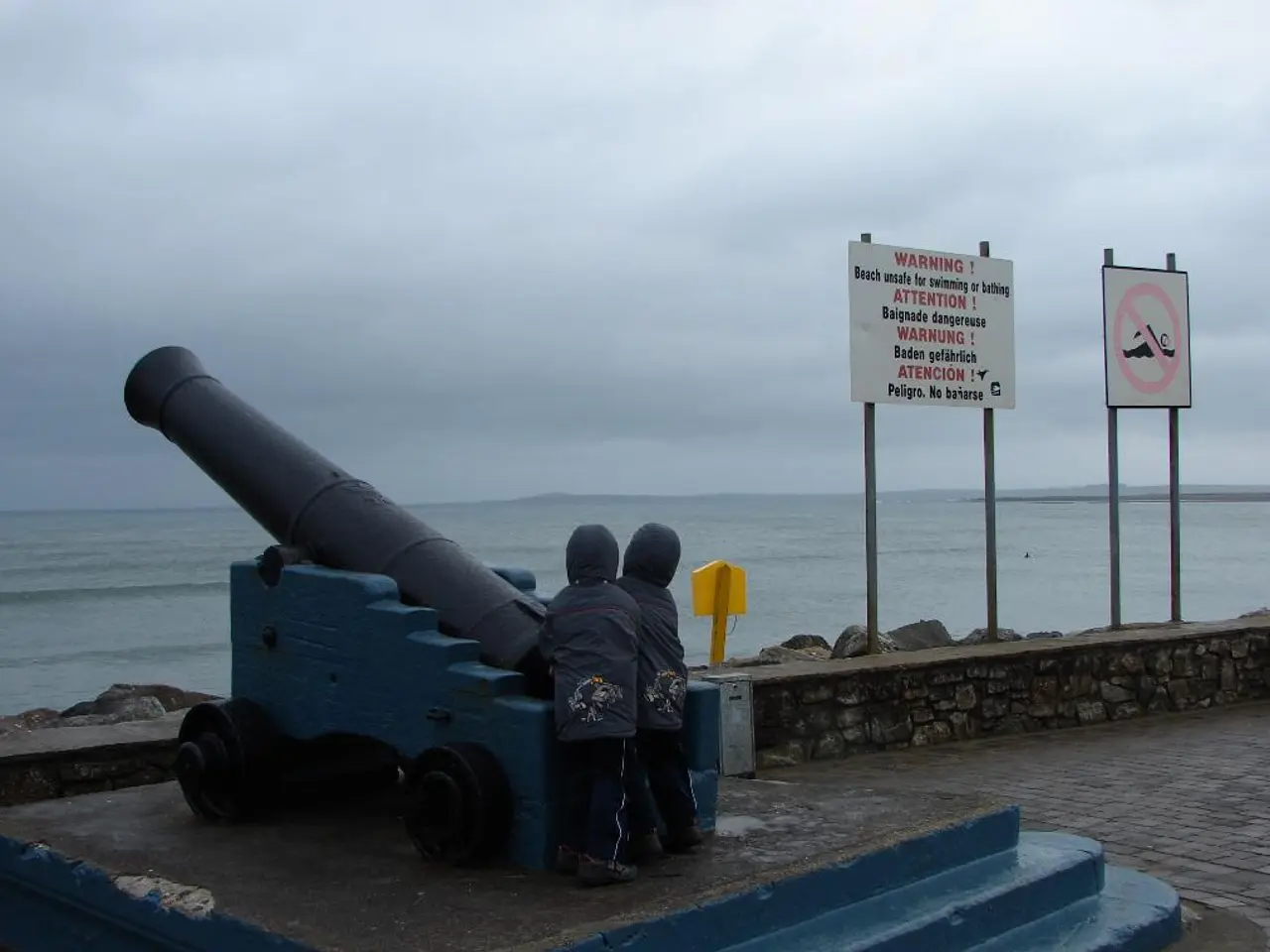Russian-Controlled Nuclear Plant Operates Despite Power Outage; Danish Ship Suspected in Drone Disruptions
The Russian-controlled Zaporizhzhia nuclear power plant in Ukraine continues to operate despite a week-long external power supply collapse. Meanwhile, Danish authorities suspect a ship, the 'Boracay' or 'Pushpa', flying the flag of Benin, of involvement in recent drone disruptions at Danish airports. Ukrainian President Volodymyr Zelenskyy is in Copenhagen, pushing for more military aid for Ukraine.
The Russian-appointed management at the Zaporizhzhia plant maintains control, ensuring safety measures are in place despite the power outage. This comes as Ukrainian officials express concern over the potential for a nuclear disaster in Ukraine.
Danish investigators are probing the 'Boracay' ship's role in the drone incidents, which have caused chaos at airports. They suspect a 'capable actor' is behind the disruptions, with Russia being a potential culprit. The Kremlin, however, denies any involvement. Speculations suggest the drones could have been controlled from ships, possibly part of the so-called Russian shadow fleet.
President Zelenskyy's visit to Copenhagen coincides with the drone incidents. He is pushing for more military support, including intelligence for long-range rocket attacks on Russian energy infrastructure. Danish Prime Minister Mette Frederiksen has called for faster European rearmament to defend against such threats by 2030.
In response to the growing threat, EU Commission President Ursula von der Leyen has proposed a comprehensive 'drone shield' system to protect the entire European continent from Russian military actions.
The situation in Ukraine remains tense, with the Russian-controlled nuclear plant's safety a pressing concern. The suspected involvement of a ship in Danish drone disruptions has raised alarms, with Russia being a potential culprit. As Ukraine seeks more military aid, European leaders are stepping up efforts to enhance their drone defense capabilities against potential Russian threats.







